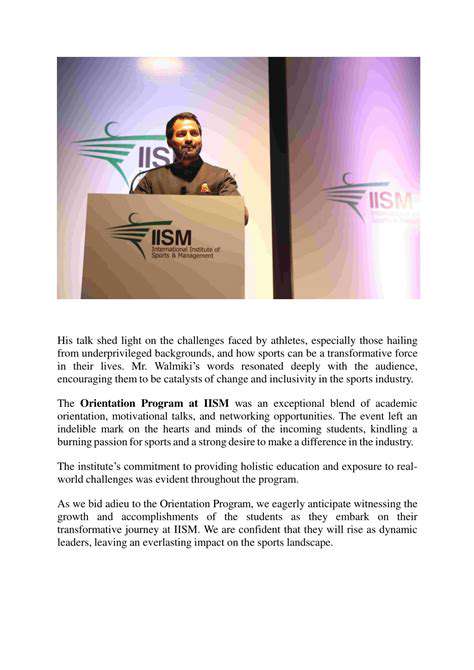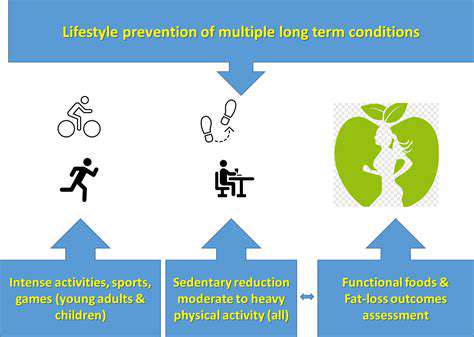Đối mặt với suy nghĩ lặp đi lặp lại liên quan đến lo âu: Điều gì giúp ích?
Identifying the Root of Your Rumination
Unpacking the Cycle of Rumination
Rumination, that persistent cycle of replaying negative thoughts and worries, can feel like a relentless internal monologue. Understanding the cycle is crucial to breaking free from its grip. It often begins with a triggering event, a perceived slight, or a feared outcome. This initial trigger sparks a cascade of negative thoughts, often focusing on what ifs and should haves. These thoughts are then replayed and analyzed endlessly, leading to heightened anxiety and a sense of being trapped in a loop. Recognizing this pattern is the first step towards effective intervention.
Identifying the specific triggers that incite rumination is key. Are you prone to dwelling on past mistakes, anticipating future failures, or agonizing over perceived injustices? Pinpointing these triggers allows you to develop strategies for managing them more effectively. This process often involves self-reflection and journaling, enabling you to identify patterns and develop a deeper understanding of your own thought processes.
Strategies for Shifting Your Perspective
Once you've identified the cycle of rumination, you can begin to implement strategies for shifting your perspective. This involves actively challenging the negative thoughts that fuel the cycle. Instead of simply accepting these thoughts as truth, try questioning their validity and considering alternative viewpoints. A helpful technique is to consider evidence that contradicts your negative thoughts and look for evidence in support of more positive or realistic outcomes.
Cognitive Behavioral Therapy (CBT) techniques, such as reframing negative thoughts and developing more balanced perspectives, can be incredibly beneficial. These techniques encourage you to identify the automatic negative thoughts and replace them with more rational and helpful ones. Practicing mindfulness and meditation can also be instrumental in interrupting the rumination cycle, promoting a sense of calm and presence, thereby allowing you to detach from the incessant stream of negative thoughts.
Developing healthy coping mechanisms, such as engaging in physical activity, spending time in nature, or pursuing hobbies, can also help to redirect your attention and energy away from rumination. These activities offer a healthy outlet for managing stress and promoting a more balanced emotional state.
Remember, breaking free from rumination is a process, not an immediate fix. Be patient with yourself, celebrate small victories, and continue to explore strategies that work best for you. Seeking support from a therapist or counselor can provide invaluable guidance and support throughout this journey.
By understanding the cycle of rumination and actively implementing strategies for shifting perspective, you can begin to reclaim control over your thoughts and experience a greater sense of inner peace.
Learning to recognize the signs of escalating rumination and implementing strategies for managing those feelings in real-time will empower you to break free from its grip.

Lifestyle Adjustments for Long-Term Management

Prioritizing Sleep
Adequate sleep is crucial for overall well-being, especially when managing long-term health conditions. Consistent sleep schedules, even on weekends, help regulate your body's natural sleep-wake cycle, improving sleep quality. Creating a relaxing bedtime routine, like taking a warm bath or reading a book, can signal to your body it's time to wind down, leading to a more restful night's sleep. Avoiding caffeine and alcohol close to bedtime can significantly improve sleep quality.
Establishing a calming sleep environment is also important. A dark, quiet, and cool room promotes better sleep. Investing in blackout curtains, earplugs, or a white noise machine can greatly enhance your sleep experience. If you're struggling to fall asleep, try relaxation techniques like deep breathing or meditation.
Dietary Modifications
A balanced diet plays a vital role in managing long-term health conditions. Focus on incorporating whole, unprocessed foods like fruits, vegetables, and lean proteins into your daily meals. These foods provide essential nutrients without excessive added sugars and unhealthy fats. Limit processed foods, sugary drinks, and excessive saturated and unhealthy fats. These dietary choices can support your body's overall function and reduce the risk of complications.
Consider consulting a registered dietitian or nutritionist for personalized dietary recommendations tailored to your specific needs and health conditions. They can help you create a meal plan that meets your nutritional requirements while also addressing any concerns you may have. This personalized approach is often more effective than general dietary advice.
Stress Management Techniques
Chronic stress can negatively impact your physical and mental health, exacerbating existing conditions. Implementing stress-reducing techniques is essential for maintaining overall well-being during long-term health challenges. Engage in activities that promote relaxation, such as yoga, meditation, or spending time in nature. These activities can help reduce stress hormones and promote a sense of calm.
Regular exercise, even moderate intensity, can significantly reduce stress. Finding an activity you enjoy, such as walking, swimming, or dancing, can help you stay active and manage stress levels. Prioritizing self-care, such as taking breaks throughout the day and engaging in hobbies, can also effectively manage stress.
Regular Exercise and Physical Activity
Physical activity is essential for maintaining physical health and reducing the risk of complications associated with long-term conditions. Regular exercise can improve cardiovascular health, manage weight, and boost your mood. Aim for at least 150 minutes of moderate-intensity or 75 minutes of vigorous-intensity aerobic activity per week. Incorporating strength training exercises at least twice a week is also beneficial for maintaining muscle mass and bone density.
Finding activities you enjoy is key to maintaining consistency. Explore different options like swimming, cycling, dancing, or team sports. Don't be afraid to start slowly and gradually increase the intensity and duration of your workouts. Consistency is key to experiencing the long-term benefits of exercise.
Social Connections and Support Systems
Maintaining strong social connections is crucial for mental and emotional well-being, especially during periods of long-term health challenges. Connecting with friends, family, and support groups can provide emotional support and reduce feelings of isolation. Sharing experiences and feelings with others who understand can be incredibly helpful. Engage in activities you enjoy with loved ones to foster and maintain positive relationships.
Consider joining support groups or online communities focused on your specific health condition. These platforms offer a valuable network of individuals who can provide understanding, encouragement, and practical advice. Remember, you're not alone in facing these challenges. Building a supportive network can make a significant difference.
Time Management and Organization
Managing your time effectively is crucial for maintaining a healthy lifestyle, especially when dealing with long-term health conditions. Prioritizing tasks, setting realistic goals, and breaking down large projects into smaller, manageable steps can help you stay organized and focused. Utilizing time management tools, such as calendars, to-do lists, or digital scheduling apps, can help you stay on track and avoid feeling overwhelmed. Learn to say no to commitments that are outside of your capacity at any given time.
Creating a structured daily routine can also help you manage your time effectively. Allocate specific times for work, appointments, exercise, and relaxation. This structure provides a sense of control and predictability, which can be particularly beneficial during challenging periods. Be flexible and adaptable to unexpected events, but maintain a general framework to stay organized and productive.